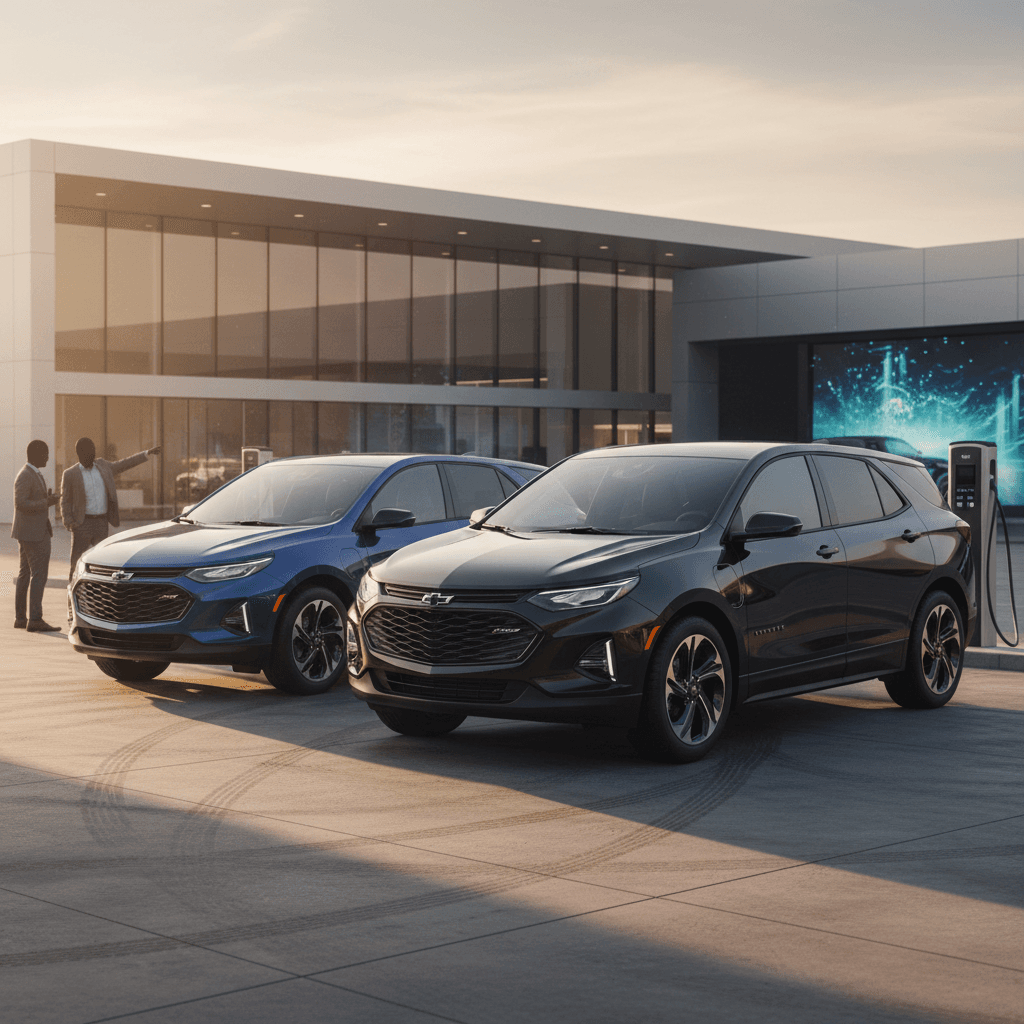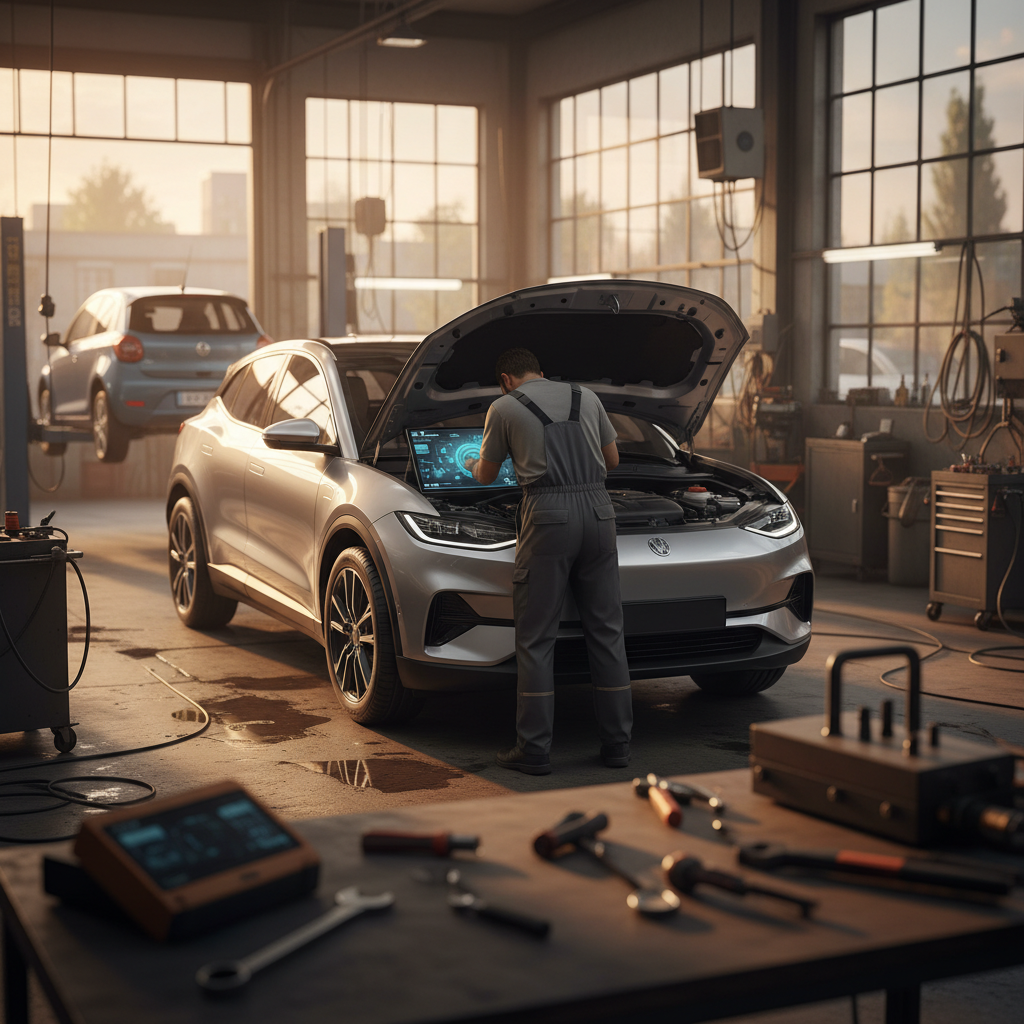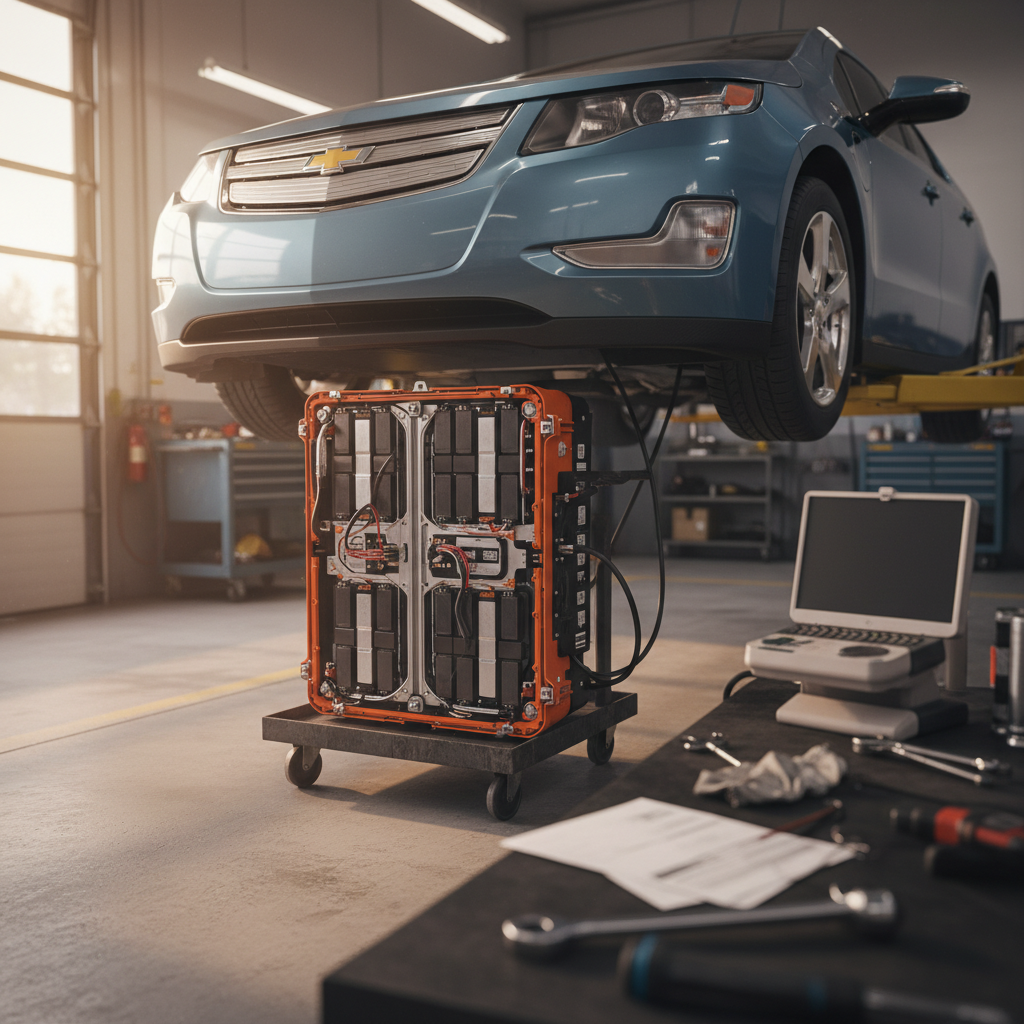GM electric vehicles are in a strange moment. On one hand, General Motors has built some of the most compelling electric SUVs on the market, riding on its flexible Ultium battery platform. On the other, slower EV demand and shifting regulations have forced GM to tap the brakes, revisit timelines, and rethink how fast it can go all‑electric. If you’re trying to decide whether a GM EV belongs in your driveway, you need the full picture, warts, wins, and what happens next.
GM EVs in one sentence
Why GM electric vehicles matter right now
In the U.S., GM is still one of the few automakers that can change the shape of the parking lot all by itself. When GM leans into a technology, catalytic converters, airbags, flex‑fuel, the rest of the industry tends to follow or at least respond. Its current push into electric SUVs is no different. The company has pledged an all‑electric light‑duty lineup in the next decade, and while the timeline has already started to wobble, the direction is clear: more EVs, fewer pumps.
GM EVs at a glance in 2025
GM’s EV strategy: the Ultium bet
Underneath nearly all new GM electric vehicles is the same idea: Ultium. It’s a modular battery and motor platform meant to power everything from family crossovers to hulking trucks and luxury SUVs. GM’s pitch is that Ultium lets engineers swap battery sizes, motor counts, and drivetrains the way you might build with Lego, fewer unique parts, more flexibility, lower cost in the long run.
What Ultium gets right
- Scalable packs: Shared modules across many vehicles should lower battery costs over time.
- Decent energy density: Competitive range without cartoonishly large battery packs.
- High charging capability: Up to around 190 kW DC fast charging on models like the Cadillac Lyriq, meaning big chunks of range in a coffee stop.
- Bidirectional potential: Newer models support home‑powering (V2H) in the fine print.
Where the reality is messier
- Production bottlenecks: Battery plants and EV factories have struggled to ramp smoothly, leading to delays and limited availability.
- Software teething pains: Early Ultium vehicles have seen infotainment glitches and configuration bugs serious enough to trigger stop‑sales on some trims.
- Strategy whiplash: Slower‑than‑expected demand has already forced GM to stretch timelines and cut or delay certain EV programs.
A moving target
Current GM electric vehicle lineup for 2025
GM’s EV catalog is in flux, but if you’re walking a dealer lot, or browsing a used‑EV marketplace like Recharged, here are the core nameplates you’ll actually encounter in the U.S. in late 2025:
- Chevrolet Equinox EV – Compact, value‑focused electric SUV and the center of GM’s EV strategy for mainstream buyers.
- Chevrolet Blazer EV – Mid‑size EV SUV with strong performance; promising on paper but hampered by early software and quality headaches.
- Cadillac Lyriq – Upscale mid‑size electric SUV, the brand’s first Ultium model and still its star EV.
- Earlier generation EVs you’ll see used: Chevy Bolt EV and EUV, plus a scattering of specialty models and early‑run EV pickups.
Quick used‑EV history lesson
Chevrolet Equinox EV: GM’s mainstream electric SUV

If GM electric vehicles are going to work for everyday Americans, the Equinox EV has to be the one that works. It’s a compact SUV, America’s automotive comfort food, priced to undercut most rivals while offering competitive range and tech.
Chevy Equinox EV highlights
Where it shines for everyday drivers
Range & efficiency
Certain front‑wheel‑drive trims advertise an estimated range in the low‑300‑mile neighborhood, which puts the Equinox EV right in the sweet spot for commuting, errands, and the occasional road trip.
Aggressive pricing
Launch pricing starts in the mid‑$30,000s for lower trims, thousands below many rivals from Ford, Hyundai, Kia, and Tesla. Transaction prices can be even softer depending on incentives and dealer reality.
Familiar format
If you can drive a gas Equinox, you already understand the EV version. Two rows, usable cargo space, and GM’s typical control layout make the learning curve shallow.
Chevrolet Equinox EV: trims and positioning
Approximate pricing and role of major trims. Always verify exact pricing and incentives in your region.
| Trim | Positioning | Approx. starting MSRP* | Key notes |
|---|---|---|---|
| 1LT | Entry FWD model | Mid-$30Ks | Smaller screen, solid standard safety tech; best if you just want affordable electric miles. |
| 2LT | Well-equipped sweet spot | Low-$40Ks | Heated features, upgraded lighting, good range; available all‑wheel drive. |
| 2RS | Sporty look | Low‑to‑mid $40Ks | Larger wheels, blacked‑out trim, similar power to 2LT with more attitude. |
| 3LT/3RS | Top trims | Mid‑$40Ks+ | More driver‑assist tech, bigger screen, and comfort features; closing in on rival pricing. |
Equinox EV trims center on value and range rather than wild performance specs.
Don’t ignore software updates
Cadillac Lyriq: Luxury Ultium flagship

The Cadillac Lyriq is the most convincing argument for GM electric vehicles right now. It looks like a show car that somehow slipped past legal and into your HOA. Long, low, and quietly extravagant, it finally gives Cadillac a modern answer to European luxury brands, without a V‑8 in sight.
Cadillac Lyriq in plain English
Key numbers that actually matter to you
Range
Rear‑wheel‑drive Lyriq models advertise around mid‑300‑mile range on a full charge; dual‑motor all‑wheel‑drive trims land a bit lower but still competitive for the class.
Performance
Available dual‑motor setups deliver power figures comfortably north of 500 horsepower. Translation: instant‑on torque and highway merges that feel more private jet than people mover.
Charging
Standard 11.5 kW AC charging and up to roughly 190 kW DC fast charging mean meaningful range recovery on road trips, about a work call and a latte’s worth of time.
- Pricing: 2025 Lyriq models start just under $60,000 for Luxury 1 trims, with higher Luxury and Sport variants climbing into the high‑$60,000s and beyond depending on options.
- Interior: A sweeping 33‑inch display, tasteful ambient lighting, and materials that finally feel worthy of Cadillac’s aspirations, not its rental‑fleet past.
- Comfort: Quiet, composed ride with the sort of relaxed, long‑legged gait that makes you invent excuses for road trips.
When the Lyriq makes sense
Other GM EVs you’ll see on the road
The Equinox EV and Lyriq are the headliners, but they’re not the whole show. Depending on where you live and where you shop, you’ll likely run into a few other GM electric vehicles:
- Chevrolet Blazer EV: A sharper‑edged, mid‑size SUV positioned above the Equinox EV. Strong on design and performance, but its rollout has been dragged down by software glitches and quality fixes. Treat early build dates with extra scrutiny, especially on the used market.
- Chevy Bolt EV / EUV (used): The old guard. Not Ultium‑based, but famously efficient and now surprisingly affordable pre‑owned. Earlier battery recall campaigns mean you absolutely want a verified, up‑to‑date battery replacement or fix.
- Ultium trucks and future Cadillacs: Depending on timing, you may see early used examples of Ultium‑based pickups and additional Cadillac EVs. These are still relatively rare birds compared with the core SUV trio.
Strengths and weaknesses of GM electric vehicles
Where GM EVs shine
- Design that finally pops: Equinox EV looks clean and modern; Lyriq genuinely turns heads in affluent zip codes already jaded by Teslas.
- Real‑world range: Competitive EPA estimates and efficient drivetrains make most GM EVs usable as primary vehicles, not just city toys.
- Comfort first: Ride quality tends to the relaxed, American side of things, quiet, soft, easygoing, rather than track‑day cosplay.
- Pricing leverage: GM knows discounts. Incentives, dealer flexibility, and federal or state credits can make these pencil out very nicely, especially versus European rivals.
Where to be cautious
- Software and infotainment: The most common owner complaints have nothing to do with motors or batteries and everything to do with screens, apps, and digital gremlins.
- Charging ecosystem: GM is building partnerships with third‑party fast‑charging networks and adopting the NACS connector, but today its ecosystem still feels more patchwork than Tesla’s.
- Strategy turbulence: Factory slowdowns, battery‑plant resets, and shifting launch schedules can affect availability, support, and resale perceptions.
- First‑generation syndrome: Many current GM EVs are early iterations of Ultium. Expect improvements, and possibly meaningful changes, in the next few model years.
Range, charging, and battery longevity
The question that really matters: will a GM EV do the miles you need, charge in the time you actually have, and hold its battery health long enough to make financial sense? Broadly, the answer is yes, with a few caveats.
What to expect from GM EV ownership day to day
From the school run to interstate stretches
Range reality
Equinox EV and Lyriq trims with the longest advertised ranges land roughly in the 300–330‑mile bracket. In real life, highway speeds, climate control, winter, you should budget more like 70–80% of that. That’s still plenty for most U.S. driving habits.
Home charging
On a 240‑volt Level 2 charger at home, you’re typically adding around 25–35 miles of range per hour depending on the model and onboard charger. Overnight, that’s a full battery from almost empty.
Fast‑charging on the road
On a healthy DC fast charger, Ultium vehicles can add significant range in 20–30 minutes. You won’t always see headline speeds, but a coffee and restroom stop is usually enough to get you back on the road with a comfortable buffer.
How to treat the battery well
Shopping new vs. used GM EVs
The good news is that GM electric vehicles already span a healthy new‑and‑used spectrum. You can pay luxury‑SUV money for a brand‑new Lyriq, or compact‑sedan money for a used Bolt with plenty of life left. The trick is matching your appetite for risk and complexity to the right slice of the lineup.
Key decisions when choosing a GM EV
1. Decide how much software risk you can tolerate
Brand‑new Ultium models tend to have the freshest features, and the least real‑world reliability data. If you’re allergic to software drama, look for models and build years with a couple of seasons of owner feedback behind them.
2. Factor in charging access
If you have a dedicated parking spot and can install a Level 2 charger, almost any GM EV can work. If you rely on public charging, you’ll want to cross‑shop charging‑network coverage in your area, not just the vehicle brochure.
3. Consider depreciation and incentives
New GM EVs can benefit from federal and state incentives, but they will also take the steepest early depreciation hit. Used models often bake that depreciation in, making a higher‑trim vehicle suddenly attainable.
4. For used Ultium, demand documentation
On a used Equinox EV, Blazer EV, or Lyriq, insist on proof of completed firmware updates, recall work, and any battery‑related service. This is where a structured report from a third party becomes invaluable.
How Recharged helps you shop used GM EVs
Shopping a used GM electric vehicle can feel like auditing someone else’s software updates, charging habits, and recall history. That’s exactly the sort of homework most people don’t have time, or tools, for. This is where Recharged is built to earn its keep.
Why browse GM EVs through Recharged
Especially if you’re eyeing Ultium models or a used Bolt
Battery health, quantified
Every vehicle on Recharged comes with a Recharged Score Report that includes verified battery health diagnostics, so you’re not guessing whether that bargain‑priced GM EV still has the range you need.
Fair pricing benchmarks
Recharged benchmarks pricing against the wider market, helping you avoid both over‑priced dealer queens and suspiciously cheap problem children.
End‑to‑end EV support
From financing and trade‑in to nationwide delivery and EV‑specialist guidance, Recharged is set up for people who are new to electric ownership, not just car nerds.
If you’re GM‑curious but nervous about being a beta tester, a lightly used Equinox EV or Lyriq with clean software history and a strong battery score can be a smart compromise: you let the first owner discover the early glitches while you collect the savings.
FAQ: GM electric vehicles
Frequently asked questions about GM EVs
The bottom line on GM electric vehicles
GM electric vehicles in 2025 are a study in ambition and adolescence. The Equinox EV and Cadillac Lyriq prove that GM can build EVs that look good, drive well, and offer genuinely useful range at prices that undercut many rivals. At the same time, software hiccups, charging‑network growing pains, and corporate strategy zigzags mean you shouldn’t buy one with your eyes closed, especially on the used market.
If you like the idea of a comfortable, familiar‑feeling American EV more than a rolling smartphone on wheels, GM’s lineup deserves a close look. Just pair that curiosity with good due diligence: battery health data, software history, and realistic expectations for charging. Browsing GM EVs through Recharged gives you that extra layer of transparency, so you can enjoy the smooth torque and quiet cabin without worrying about what’s happening deep inside the Ultium pack.



